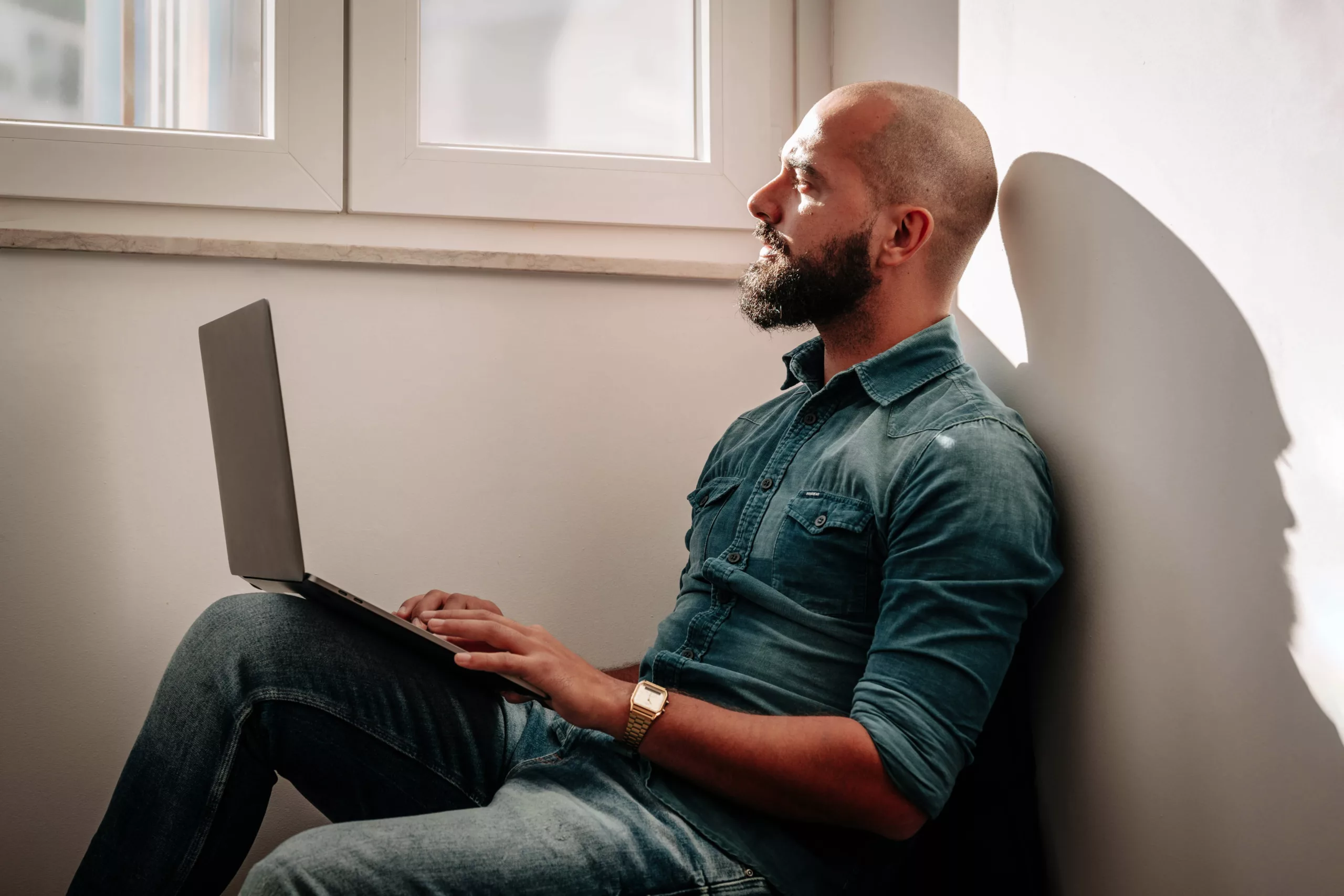Radical Career Changes: From Research and Pharmacy to IT

Two inspiring Stories of Radical Career Changes
Beatriz was a researcher at a neurosciences lab, Carolina worked as a pharmacist for several years. Today, they both work as software programmers for Volkswagen Digital Solutions in Lisbon for the MAN Digital Hub.
Carolina, you worked as a pharmacist for eight years. Why did you leave pharmaceutics for IT?
CAROLINA: There was a point in my job as a pharmacist where I felt kind of stuck: every day being pretty much the same meant I didn’t have much prospect of development. However, changing career was not an overnight decision. I spent at least two years finding out whether IT was something that I could imagine doing for the rest of my life.
Beatriz, you were a research student for your Master’s degree, studying the impact of neuropsychiatric disorders on the brain. Now you work at Volkswagen Digital Solutions, in the MAN Digital Hub. Why?
BEATRIZ: I enjoyed the IT-related courses during my studies, and while I really liked my field of study on neurosciences and neuropsychiatric disorders, working conditions for researchers aren’t great in Portugal. I then took a post-graduate course in systems engineering, which was a six-month intensive programme targeted to career changers. Afterwards, I got a job in IT integration at a consulting company and worked there for a few years, before I joined Volkswagen Digital Solutions in June 2022.
Carolina, how did you acquire the necessary knowledge and skills?
CAROLINA: I did a four-month boot camp! Without any background in IT or engineering it was almost a 24/7 programme for me. After this, I also started at a consulting company and then came to Volkswagen Digital Solutions about one and a half years ago.
“AS A WOMAN, BEING PART OF THE IT FIELD MAKES ME FEEL VERY PROUD” – Carolina
What were you struggling with in this career change?
CAROLINA: At the beginning of the boot camp, we learnt a lot of concepts at a high pace. I also needed to adapt my learning style as it was really different from what I had learnt in the past. Having people in the same situation in the group was helpful. They were struggling with the same and we helped each other a lot. At a certain point there was a “click” and I started to understand the processes.
Beatriz, how did you overcome your struggles during your career change?
BEATRIZ: When I started working at the consulting company I struggled with the fact that my knowledge and also my learning curve were so different to the experience of colleagues who had studied IT. I tried to overcome that by putting in extra effort and doing an online course. My colleagues were very helpful in sharing their knowledge, explaining a lot and accepting that my background was different.
How did you benefit from your decision – apart from your new opportunities in IT?
CAROLINA: Any change gives us the ability to adapt. You need that skill regardless of the job. I also learnt that everything is possible if you put the necessary effort into it. First you might think you can’t solve the problem. But when you look at it from a different perspective or dig deeper and try to understand with the help of the more experienced ones, then you move forward step by step and you will figure it out.
“I REALLY SEE THE IMPACT OF OUR WORK, FOR EXAMPLE IN DIGITALISATION”
From researcher to software developer: Which perspectives and experiences from your previous profession do you bring into your current job?
BEATRIZ: When I was working in the research lab, we participated in many events to communicate and present our insights. I learnt a lot about communication and collaborating in a team – these types of skills are important.
And how does your background in pharmacy help you today, Carolina?
CAROLINA: From the relationships with the clients in the pharmacy and by dealing with complaints, I learnt to be more patient and to listen first and then organise my speech according to that. I also learnt how to communicate my knowledge and ideas in a way that the other person can understand it.
Looking back, what do you think about your career change now?
CAROLINA: It was the best decision I ever made. Even during the hard times when I struggled, I never regretted the decision. Being part of the IT field, especially as a woman, and part of that constantly changing world, makes me feel very proud.
BEATRIZ: I’m also very happy that I did it and never regretted it. I really see the impact of our work, for example in digitalisation. The feeling of doing really important things gives me joy.
What advice would you give people who are also thinking about a career change?
CAROLINA: It’s trending to work in IT, but you really need to check whether it’s exciting for you and whether you can imagine working in it for the rest of your life. Because it needs commitment, you need to dedicate a hundred per cent to it, at least in the beginning. If you are willing to work hard, everything is possible in that regard.





